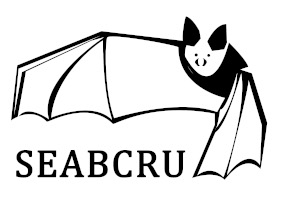History
The idea for the website was already formulated in the 2010s, but a boost to the project was the realization of how little echolocation information is available on Southeast Asian bats, the research area of several steering committee members. As a first step, the Asian Bat Call Database (ABCD) was developed, which was intended to be a common platform for researchers dealing with the sounds of Asian bats. A Biodiversity Information Fund for Asia (BIFA) Data Mobilization Project Grant gave another impetus to this, with many researchers joining the project and offering their recordings and their associated occurrence data to the program. Occurrence data was made available through GBIF, while most of the sounds are shared in ChiroVox.
Aims
The biodiversity crisis is one of the biggest problems of our time. It affects almost all groups of living things, including bats. The populations of many species have become scarce as extremely large areas are being converted in a way that is unfavorable to them. Bats follow a hidden lifestyle, and one of the most effective ways to survey them to use bat detectors. This method has a long tradition in temperate areas, but there is still a great information gap in the more diverse tropical areas. We would like to fill this gap with our website to facilitate bat research and conservation in the whole world.
Terms of use
Recording bat sounds in many cases requires the hard work of researchers. The commercial use of recordings (e.g., using them to train automatic identifiers etc.) available through this website is generally prohibited, except when a "CC0" or a "CC BY" license is indicated on the data sheet of the recording or there is a written permit from the contributor.
If data is used for species-specific analysis for journal publication purposes, the Rights Holder(s) must be contacted (using the contact information listed at the respective recording) for co-authorships discussions that will be at the discretion of the Rights Holder(s) and the User. ChiroVox does not play any role in determining authorships between Rights Holder(s) and Users.
Users are defined as an individual or organization that downloads data from ChiroVox. As mentioned above, Users are required to cite the ChiroVox paper (link) or the specific Rights Holder(s) (dependent on level of analysis), if data are distributed in any fashion. Failure to cite the ChiroVox website or the specific Rights Holder(s) will result in possible legal actions at the discretion of the specific Rights Holder(s) whose data were improperly used and distributed.
Specifications for User Access of Data
A) Calls and the associated data will be available to the general public for viewing and downloading under one of the below licenses:
CC0: data are made available for any use without restriction or particular requirements on the part of users
CC BY: data are made available for any use provided that attribution is properly given
CC BY-NC: data are made available for any use provided that attribution is properly given and the use is non-commercial
CC BY-NC-ND: data are made available provided that attribution is properly given but the material modified by any way may not be distributed and the use is non-commercial.
B) Only associated data will be available to the public; calls can only be accessed
if the Rights Holder is contacted by the User and permission is granted. If a response to a call download request is not given within 3 months from the date of the original request, the rights transfer to the ChiroVox steering committee which has the right to decide if the calls can be released to the requesting User.
How to contribute?
ChiroVox welcomes bat sound recordings from all over the world from any species.
The development of the website is continuous, and we will implement a user management
and upload function in the near future, but until then, please contact us at contact@chirovox.org
if you want to contribute to this public bat call library.
We are primarily waiting datasets consisting of several tens or hundreds of calls until the
automatic upload function will be implemented in a few months.
The sound files and data has to meet some requirements to be able to implement into our database.
- Maximum size 20 MB.
- It is ideal but not mandatory to contain only one clear and complete sequence from an animal.
- Good call/background noise ratio, the sequence has to be clearly identifiable.
Metadata is also important, please fill out this sheet. It has sample data and separate tables with instructions on data formats and predefined fields. Please send the data file through email (contact@chirovox.org) and we will give you a OneDrive folder where you can upload the sound files. If it's more convenient, you can use your own Dropbox, Google Drive, OneDrive etc or some file sharing service to send them.
Steering committee
Tamás Görföl
researcher
National Laboratory of Virology, Szentágothai Research Centre, University of Pécs
formerly Mammal Collection, Department of Zoology, Hungarian Natural Museum
www.gorfol.eu
gorfol.tamas@gmail.com
Sándor Zsebők
researcher
Institute of Ecology and Botany, Centre for Ecological Research, Hungary
zsebok.s@gmail.com
Gábor Csorba
curator of mammals, researcher
Mammal Collection, Department of Zoology, Hungarian Natural Museum
csorba.gabor@nhmus.hu
Dorottya Győrössy
PhD student
Mammal Collection, Department of Zoology, Hungarian Natural Museum
gyorossy.dodo@gmail.com
Joe Chun-Chia Huang
independent researcher, Taiwan
Southeast Asian Bat Conservation Research Unit (SEABCRU)
ecojoe.huang@gmail.com
Tigga Kingston
professor, researcher
Southeast Asian Bat Conservation Research Unit (SEABCRU)
Department of Biology, Texas Tech University, USA
tigga.kingston@ttu.edu
Acknowledgement
The development of the Asian Bat Call Database, the ChiroVox Database and this website was supported by the Hungarian Scientific Research Fund (OTKA K112440) and the National Research, Development and Innovation Fund of Hungary (NKFIH KH130360). The collection of data and the sharing of the connected biodiversity information through GBIF was supported by the Biodiversity Information Fund for Asia (BIFA) Data Mobilization Project Grant. We would like to thank the hosting of the website for Webgalaxy and the storing of sound files for Eötvös Loránd University, Budapest. Photos on the website were sincerely donated by Csaba Forrásy.
Contact
E-mail: contact@chirovox.org
Please check our
Facebook page and
Twitter account as well!


